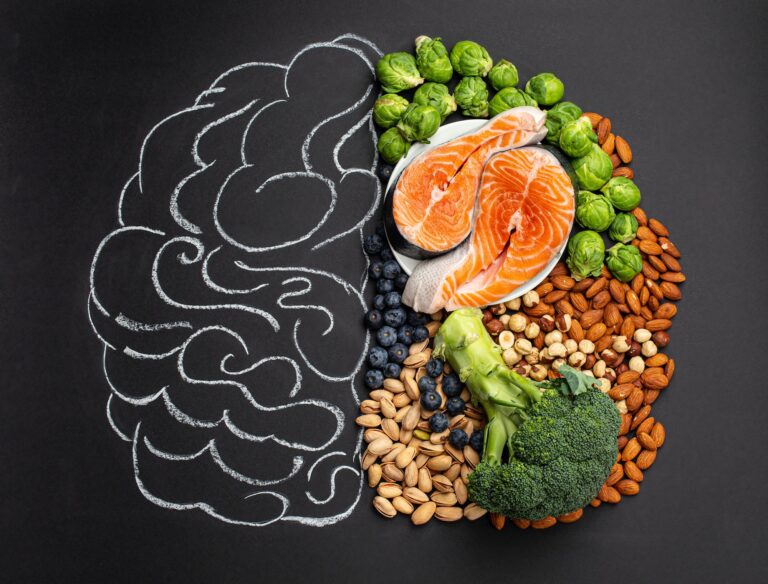
5 Menopause Support Complex Supplement to Help Ease Symptoms
Menopause support complexes are dietary supplements with herbal extracts and vitamins aimed at alleviating symptoms during menopause
Do you find yourself feeling mentally foggy? Burnt out? Maybe even depressed? You’re not alone — it’s more common than you think. Have you ever considered that how physically active you are might affect your mental wellbeing? Exercise has been shown to cause changes in our neurochemistry that can have a positive effect on our mental health. In this blog post, we’ll dive deep into how exercise helps with neurotransmitter production and how it can improve your mental health. We’ll look at various types of exercise and the effects they can have and discuss how this knowledge can be used to help prevent and treat depression and anxiety. So, let’s get started!
Neurotransmitters are chemical messengers produced by neurons that transmit information from one neuron to another, ultimately controlling various functions and processes in the body. They help bridge the gap between cells in the brain and nervous system and allow for communication between them. There is some debate about how neurotransmitters work and what their exact role is in regulating our emotions, behaviors, and general mental health.
Some experts believe that neurotransmitter production is directly linked to mental health; that certain levels of neurotransmitter production can lead to mood adjustments, anxiety, or depression while others insist that a lack of neurotransmitters don’t necessarily equate to these issues. It’s important to note that each side could be right depending on the case as it makes sense that low levels of dopamine or serotonin may cause someone’s mood to change drastically. At the same time, this doesn’t necessarily mean that higher levels offer protection against mental health issues like depression or anxiety.
Exercise can play an important role in changing neurotransmitter levels in the body so understanding these chemical messengers is an integral step of determining how physical activity affects our mental well-being. To better understand this connection, we will now examine “What Are Neurotransmitters?” in greater detail.

Neurotransmitters are small molecules produced in the brain which act as chemical messengers that allow nerve cells to communicate with one another. These molecules are responsible for carrying and transmitting signals between neurons throughout the brain and body, enabling complex thought processes such as memories, emotions, movement, and coordination. There are several major neurochemical families of neurotransmitters such as serotonin, dopamine, epinephrine, GABA, glutamate, and endorphins.
Serotonin is a key neurotransmitter in regulating mood, appetite and sleep cycles. Dopamine helps to create feelings of reward and pleasure and is involved in motivation and learning. Epinephrine is an adrenaline hormone that triggers the fight-or-flight response in the body. GABA (gamma-Aminobutyric acid) works to inhibit neuron activity , while glutamate helps to initiate it. Endorphins play a role in pain management and emotional calming .
The effects of neurotransmitters on mental health are widely debated. While some scientists believe that neurotransmitted deficiencies can negatively affect mental health, others assert that behavioral therapies may be more effective in treating conditions such as depression or anxiety due to lifestyle changes rather than solely focusing on biological treatments.
Regardless of these debates on neurotransmitter effects on mental health, there is no dispute over the important role they play in overall wellbeing. The next section will discuss how exercise facilitates the production of these key neurotransmitters, contributing to improved mental health.
The role of exercise in neurotransmitter production is highly controversial; some experts argue that it is a major player, while others downplay its significance altogether. However, there is mounting research showing that exercise can and does affect neurotransmitter production.
To understand how exercise plays a role in creating and releasing neurotransmitters, one must first comprehend the basic science behind neurotransmitter production. While some researchers believe that physical activity can stimulate neurogenesis or create new neurons and synapses, many agree that physical activity primarily works to boost signaling between already existing neurons by altering the production and clearance of many different types of neurochemicals.
Specifically, the release of endorphins, dopamine, and serotonin can be increased through regular aerobic exercise. For example, when an individual engages in moderate physical activity and their heart rate increases for longer than twenty minutes, it triggers the release of endorphins which can lead to improved moods, reduction of pain levels and heightened perceptions of well-being.
Interestingly enough, recent studies have also shown evidence of a link between acute bouts of intense exercise (such as HIIT) and increased dopamine levels. This indicates that vigorous exercises (such as wrestling or running) may also increase neurotransmitter production in certain neuron populations due to the intensity of the stimulation they provide during the exercise event itself. This suggests that both types of activities have different effects on neuronal pathways and neurotransmitter secretion levels.
Although the exact impact of exercise on neurotransmitter production remains inconclusive, it appears clear that participating in structured physical activity can lead to improvements in mental health associated with changes in neurological function. As such, further research into this area is imperative to gain a more comprehensive understanding of this important topic. With this enhanced understanding comes even greater potential for innovative approaches to cognitive benefits from exercise-induced changes in neurotransmission. With this in mind, let’s move on to discuss how these changes are manifested through the “Effects of Exercise on Neurons”.

Exercise is well known to have beneficial effects on mental health. One of the main ways that it can do this is by stimulating the formation of new neurons. Through stimulating the growth of neurons in parts of the brain responsible for things like memory and emotion regulation, exercise has the potential to boost cognitive functioning, reduce anxiety, and increase overall wellbeing.
Neurogenesis, or the growth of new neurons, occurs in several regions of the brain including the hippocampus, subventricular zone, and olfactory bulb. Exercise has been found to activate these areas and cause them to produce new neurons. For example, research has demonstrated that animals that undergo regular exercise demonstrate increased cell proliferation in their hippocampus – a region responsible for memory and learning – when compared to their sedentary counterparts.
The exact mechanisms behind how exercise affects neuron production are not fully understood yet. However, recent evidence suggests that exercise exerts its effects via molecular pathways related to hormones such as Brain-derived Neurotropic Factor (BDNF), growth factors like insulin-like growth factor 1 (IGF-1) and VEGF (vascularendothelial growth factor), and inflammatory cytokines like interleukin-6 (IL-6). These molecules all have positive regulatory effects on neuron production; as they increase in concentration due to exercise, so too does the proliferation of neurons in respective regions of the brain.
Though these findings support the idea that exercise can positively influence neuron production, there are some skeptics who argue that it is not possible for humans to grow new neurons in adulthood due to their more developed neural networks at this stage. While it is true that our brains may not create new neurons at the same rate as a child’s would, research from 2017 using Magnetic Resonance Imaging (MRI) scans demonstrated increases in gray matter volume in adults with regular aerobic exercise when compared to those without any form of physical activity – suggesting that adult brains can still be affected by changes in lifestyle such as exercise.
The production and release of neurotransmitters during exercise is a widely studied phenomenon in the field of mental health. Neurotransmitters are chemicals that help regulate behaviors, emotions, physical actions and thought processes. Exercise has been shown to increase the release of many key neurotransmitters, including dopamine, serotonin, endorphins, and norepinephrine.
When it comes to dopamine—the “feel good” hormone—a number of studies have found that exercise increases its release during activity as well as throughout the hours and days following activity. Dopamine also helps regulate motor function, motivation, reward processing, cognition and learning processes. Some researchers have suggested that dopamine might even play a role in weight management due to its involvement with satiation—the sense of fullness after eating or drinking. One study even demonstrated a direct correlation between the amount of aerobic exercise performed and increased levels of dopamine in participants who completed at least 30 minutes of exercise six days per week for a period of 16 weeks.
Serotonin is another important neurotransmitter involved with mood regulation and stress-regulation. It has been linked to anxiety disorders and depression specifically due to its ability to affect one’s emotional wellbeing by impacting behavior, cognition and somatic functions. Many people believe that serotonin levels can be increased through diet or medications, however both regular cardiovascular exercise and strength training have been shown to naturally raise serotonin levels. With this knowledge in mind, it has been postulated by some researchers that both physical exercise and cognitive exercises can aid in mood improvement due to an elevation in serotonin levels.
Endorphins are often referred to as the body’s “natural painkillers” because they help alleviate minor aches, pains and discomfort throughout the body. These chemicals have also been connected to feelings of pleasure as well as euphoric states like runner’s high (which some athletes experience when engaging in extreme activities). While endorphins offer several helpful benefits, their effects are short-term; meaning that maintaining an active lifestyle will be necessary for frequent benefits from these neurochemicals.
Norepinephrine is lastly important for moderating our response to stressors; meaning it helps control how we react to challenging situations along with managing alertness levels throughout the day. When working out regularly—especially during intense cardio sessions—norepinephrine levels can increase significantly compared to resting concentrations. This can lead to both physical effects like rapid heart rate (tachycardia) as well as cognitive effects such as improved focus, concentration and alertness during everyday activities like work or schoolwork/studying.

Exercise is an important factor in maintaining overall physical and mental health. Not only does it strengthen the body physically, but it also helps to reduce stress, manage depression and anxiety, and sharpen one’s focus. It has been proven to lead to improvements in concentration, creativity, memory, and problem-solving abilities. Regular exercise can even increase cognitive skills such as decision-making, self-control, and planning.
This benefit of mental clarity also extends to physical benefits like improved cardiovascular health, stronger bones, better weight control, increased muscle mass and greater stability. The strongest correlating factor for physical health is intense aerobic exercise. This type of exercise strengthens the heart muscles and increases the amount of oxygen that the heart pumps which in turn helps reduce blood pressure. Furthermore, there are obvious aesthetic benefits such as increased toning, enhanced muscular definition, weight management and a more attractive physique.
Exercise could also have negative implications if taken too far or not monitored properly by a medical professional. There are debates over whether strenuous training can lead to fatigue or soreness that gets in the way of optimal performance during physical activities or by mirroring symptoms associated with attention deficit hyperactivity disorder (ADHD). Intense exercisers may find themselves unable to perform at their best during certain activities due to overexertion from prior overenthusiastic workouts.
Aerobic exercise is an essential component of any well-rounded fitness routine and has a myriad of evidence-backed benefits for mental health. It refers to repetitive rhythmic physical activity performed in the presence of oxygen, with the goal of raising the heart rate and burning calories. Running, swimming, cycling and brisk walking are all popular examples of aerobic exercise.
First, some research suggests that aerobic exercise may help reduce stress, anxiety and depression. For example, one study found that after just 20 minutes of aerobic exercise, participants reported feeling less stress than those who didn’t exercise. Similarly, another study concluded that those who regularly participated in aerobic activities reported lower levels of depression.
Additionally, a growing body of literature has highlighted the role of aerobic exercise in cognitive performance. Regular aerobic activity for at least 12 weeks was associated with improved performance on various hallmarks of brain functioning such as processing speed, working memory and executive functions like problem solving and planning abilities.
It is important to note however that while much research has demonstrated the beneficial effects of aerobic exercise on mental health, not all studies support this conclusion. For instance, a meta-analysis looking at 18 different randomized control trials concluded that evidence linking aerobic activity and mental health was mixed. Similarly, another systematic review also highlighted numerous inconsistent results observing positive mental health outcomes from aerobic exercise interventions.
Overall, regular aerobic physical activity holds major potential to help improve both physical and psychological functioning when practiced safely and consistently. Consequently, a moderate-intensity aerobic training program should be part of one’s overall lifestyle approach to maintaining both good physical and mental health.
Now that we have laid out the key benefits associated with engaging in regular aerobic exercise activity let’s now dive into the next section: Summary of the Role of Exercise in Neurotransmitter Production.
The role of exercise in neurotransmitter production is an important one when considering mental health. Exercise triggers the release of serotonin, dopamine and norepinephrine – three key neurotransmitters that are key to regulating mood and behavior. As such, regular exercise has been shown to reduce stress levels and reduce the risk of developing depression and anxiety.
Serotonin is a neurotransmitter commonly associated with feelings of wellbeing and happiness. It is known to work by helping nerve cells communicate better, reducing irritability, impulsiveness and improving overall mood. Studies have shown that increased physical activity can lead to increased serotonin levels. This improved communication between nerve cells can lead to feeling more relaxed, better coping with stress, longer sleeping periods and better control over emotional reactions (1).
Dopamine is a neurotransmitter that plays an important part in reward-based behaviors, such as feeling pleasure from eating or enjoying activities (2). Exercise is a major source of dopamine production, leading to improved concentration and faster decision-making processes. Regular exercise also helps to reduce cravings for addictive substances such as drugs and alcohol (3).
Norepinephrine is another important neurotransmitter which helps to increase adrenaline during physical activity and serves as a defense against anxiety. Exercise can increase endorphin production, leading to feelings of euphoria (4). As well as increasing alertness and focus, it also helps boost energy levels throughout the day.
The debate over the role of exercise in neurotransmitter production tends to focus on the amount of exercise required for benefitting mental health. While some argue that only moderate-intensity aerobic exercise will suffice (e.g. running), others point out that any form of physical activity, even light housework or gardening, can improve neurochemical balance (5). Ultimately both sides agree that regular exercise should be a staple part of any individual’s daily routine in order to support their mental health.

Exercise of any type can increase neurotransmitter production, such as endorphins that help boost mood and reduce feelings of stress. Aerobic exercises like running or swimming have proven to be especially beneficial for producing more neurotransmitters due to the increased rate of breathing, heart rate, and oxygen consumption. Additionally, strength training and stretching have been linked to increased levels of both GABA and serotonin, two key neurotransmitters in the body that regulate stress levels and sleep patterns. Finally, regular moderate activities like walking can also be effective for increasing levels of dopamine, another key player in our mental health.
Different types of exercise have different effects on neurotransmitter production. Long duration aerobic exercise has been linked to increases in serotonin and dopamine, which can have an overall positive effect on mood and mental health. High-intensity interval training, on the other hand, has been shown to increase levels of norepinephrine and endorphins which can improve focus, concentration, and motivation. Resistance training, such as weight lifting or bodyweight exercises, leads to increased levels of growth hormone, which is responsible for physical development and repair of cells–including in the brain–so it may be beneficial in promoting brain health. Additionally, regular physical activity of any type is associated with decreased levels of cortisol–a hormone released during times of stress that has a negative impact on cognition. Therefore, different types of exercise can produce various beneficial effects on neurotransmitter production, depending on the type and intensity of the activity.
The biological mechanisms behind increased neurotransmitter production during exercise are complex, but they can be generally broken down into three categories: energy changes, inflammation and direct hormone responses.
First, changes in energy production and utilization during exercise can lead to increases in neurotransmitter synthesis. During aerobic exercise, energy needs increase and fuel sources such as glucose or fatty acids must be supplied to working muscles. The body responds to this stress by diverting energy away from digestion and absorption and instead towards increased production of neurochemicals like serotonin, dopamine, and norepinephrine.
Second, inflammation may also play a role in increased neurotransmitter production during exercise. Exercise-induced inflammation is associated with elevated levels of cortisol, an important regulatory hormone released by the adrenal glands that directly impacts the release of neurotransmitters. For example, higher levels of cortisol have been shown to result in increases in dopamine release throughout the brain.
Finally, direct hormone responses may also be responsible for increased neurotransmitter production during exercise. In particular, physical activity is thought to stimulate the release of endorphins—opioid receptors found throughout the brain that interact with dopamine and norepinephrine systems. Endorphin signaling likely has meaningful interactions with both short- and long-term changes in mental health.
Overall, it’s clear that multiple biological processes work together to cause increased neurotransmitter production during exercise. From shifts in energy demands to inflammation to direct impact on hormone signaling, the full picture remains incomplete—but it’s becoming increasingly clear just how integral activity is for fostering good mental health.

Menopause support complexes are dietary supplements with herbal extracts and vitamins aimed at alleviating symptoms during menopause

Vitamin C, D3, Zinc, and Quercetin support immune health. They enhance immune cell function, fight infections, reduce inflammation, and provide antioxidant benefits.

Ginseng, a valued herb with adaptogenic and antioxidant properties, is popular as a supplement for improved well-being, energy, and immune function.

Nootropic supplements enhance focus, memory, and cognitive function. They boost mental clarity, motivation, and creativity for improved performance and brain health.

Garcinia cambogia, a tropical fruit, is touted for weight loss. Its active ingredient, HCA, may inhibit fat formation, but evidence is limited. Consult a professional before use.

More and more people are jumping on the mushroom supplement bandwagon these days, but you should be aware that there are potential side effects you should know about before taking the plunge. Whether you’re begging for overall well being or looking for an extra performance boost, you’re going to want to make sure you’re making an informed decision before adding mushroom supplements to your daily routine. We’ve put together a list of potential side effects to look out for, so read on and learn the truth before you start popping those pills.

Moringa, the “miracle tree,” offers numerous benefits. Moringa supplements provide essential nutrients, antioxidants, anti-inflammatory effects, and potential blood sugar and cholesterol regulation. They support immunity and combat malnutrition, but medical advice is essential.

It’s a good thing that Mother Nature both created and found cures for many of the ailments we humans suffer from. From the common cold to serious diseases, herbs have the potential to not only alleviate symptoms, but to completely prevent illnesses in the first place! Herbal remedies for immune system support have become increasingly popular as natural ways to boost your immunity against illness start to catch on.
